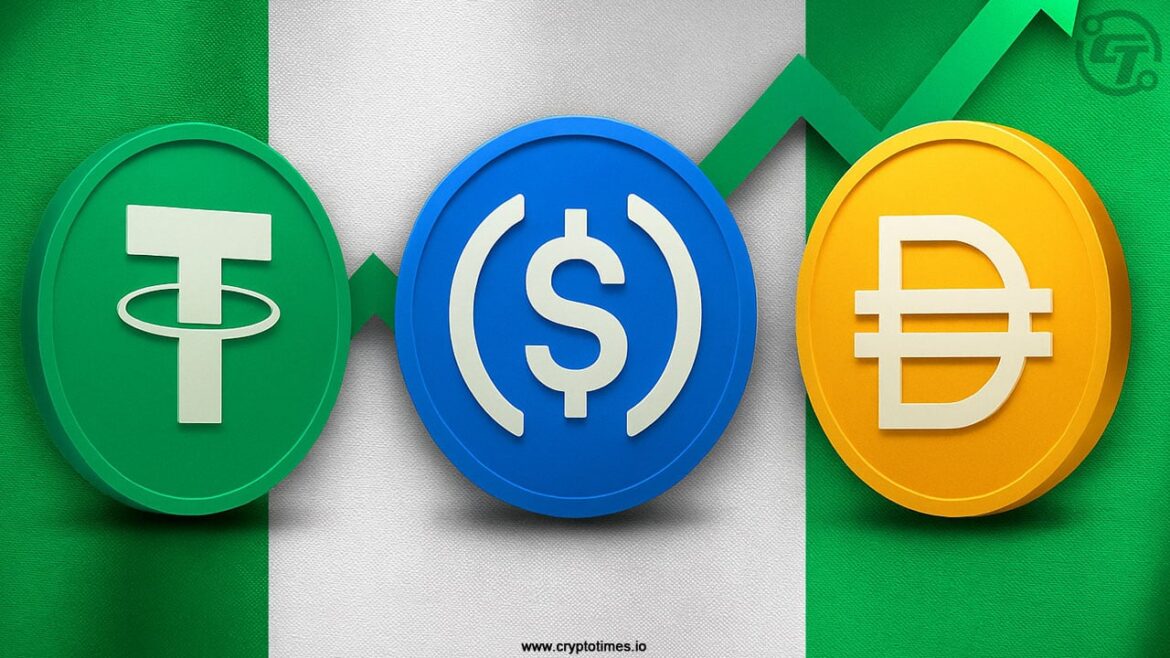between July 2023 and June 2024. This makes Nigeria the biggest stablecoin market in sub-Saharan Africa, according to a new report by Yellow Card.
As per the report, almost half of all crypto activity in the region—43%, now comes from stablecoins. Besides, other countries such as South Africa, Kenya, Ethiopia, Ghana, Uganda, and Zambia are experiencing rising adoption. South Africa posted 50% monthly growth since October 2023, showing demand for stability amid volatile currencies.
Growth Drivers Across Africa
Stablecoins are taking the lead over Bitcoin as the go-to digital asset in Africa. According to Yellow Card, 99% of their transactions now involve stablecoins. USDT is at the front, holding an 88.5% market share, while USDC comes in second at 9.9%.
The report also reveals that 70% of users turn to stablecoins for personal purposes like saving and sending money home, while the other 30% use them for business transactions. Sharon Tum, Yellow Card’s Regional Manager for East Africa, provided a better explanation of this trend.
She said, “Stablecoin adoption is accelerating among businesses for three clear reasons: faster cross-border settlements, reduced FX costs, and hedging against currency volatility.”
Consequently, integration with existing systems has boosted adoption in Kenya. Peter Mwangi, Yellow Card’s Kenya Country Manager, pointed to mobile money. “The country’s strong mobile money infrastructure, especially M-Pesa, allows for easy stablecoin integration,” he said.
Local Innovation and Regulation
Nigeria is also exploring homegrown stablecoin options. Roqqu recently listed the compliant Naira (cNGN), pegged 1:1 to the local currency, according to a report by Techcabal. Other exchanges like Busha and Quidax are already on board with the token.
Emmanuel Peter from Roqqu highlighted the grassroots adoption, stating, “A currency isn’t truly a currency unless the people embrace it.”
Meanwhile, regulators are getting involved with well-structured programs. Nigeria’s SEC recently teamed up with Kenya’s School of Government, Busha, and Cambridge to roll out a digital assets course.
SEC Director General Emomotimi Agama noted that the purpose of this initiative is to prepare leaders so that they can manage assets “with assurance instead of precaution.”
Across the continent, economies face the challenges of slow payments, high remittance charges, and the lack of proper currency protection. Africa is now looking toward stablecoins to help solve these issues.
Also Read: UAE’s RAK Properties To Accepts Crypto for Real Estate Purchases

